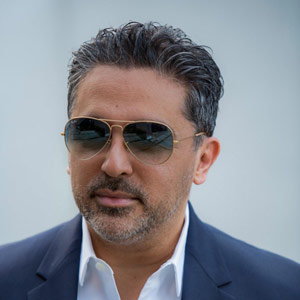پویا پورجلیل، با نام هنری پویا، در ۱۵ دی ۱۳۵۴ در بندر انزلی، شهری بندری در سواحل دریای خزر، به دنیا آمد. او در خانوادهای چهار نفره بزرگ شد و در حدود دهسالگی، یعنی حدود سال ۱۳۶۴، به همراه خانوادهاش به نروژ مهاجرت کرد. زندگی در محیطی متفاوت برای هفت سال، دیدگاه فرهنگی جدیدی به او بخشید و علاقهاش به موسیقی را شکل داد.
در نوجوانی، پویا برای پیگیری حرفهای موسیقی به لندن رفت. در طی پنج سال اقامت در آنجا، در کلاسهای صدا و موسیقی شرکت کرد و در کلابها و محافل ایرانی اجراهایی برگزار کرد. اجراهای او در کلاب معروف ساغی در خیابان کنزینگتون لندن، توجه بسیاری از ایرانیان مقیم انگلستان را جلب کرد و باعث شد جایگاهش در میان جامعه ایرانیان تقویت شود.
در سال ۱۳۷۷، او به لسآنجلس مهاجرت کرد تا وارد بازار موسیقی پرجنبوجوش ایرانی در آمریکای شمالی شود. با شرکت Taraneh Enterprises قرارداد بست و اولین آلبوم رسمی خود را با نام قطره باران در سال ۱۳۷۹ منتشر کرد. این آلبوم آغازی برای فعالیت هنری موفق او بود که تاکنون شامل هفت آلبوم و بیش از ۳۰ موزیکویدیو شده است.
سبک موسیقی پویا پورجلیل ترکیبی از پاپ مدرن غربی با ملودیهای سنتی ایرانی است. صدای گرم و اجرای پرانرژی او در کنار ترانههای محبوبی چون «ریزه ریزه»، «پریشون»، «خوشبختی» و «قرص خواب»، او را به یکی از چهرههای ماندگار موسیقی پاپ ایرانی تبدیل کرده است. از آثار جدید او میتوان به تکآهنگهای «ممنونم» (۱۴۰۳) و «میروم» (۱۴۰۲) اشاره کرد.
در خارج از دنیای موسیقی، پویا علاقه زیادی به فعالیتهایی مانند تیراندازی، کمپینگ، شنا، آشپزی و تماشای فیلم دارد. او در سالهای اخیر با راهاندازی شرکت مستقل خود به نام Mahan Entertainment کنترل بیشتری بر تولید آثارش به دست آورد. در سال ۱۳۹۹ نیز بهدلیل انتشار موزیکویدیوی «دکتر» از ساسی، نقدهایی را نسبت به محتوای آن مطرح کرد و نگرانیهایش را درباره آینده موسیقی فارسی بیان نمود.
Pouya Pourjalil (also known by his stage name Pouya) was born on January 5, 1976, in Bandar‑e Anzali, a port city on Iran’s Caspian coast. Growing up in a family of four, he experienced a profound cultural shift at the age of ten when his family immigrated to Norway, where they lived for seven years ([Wikipedia][1], [Disrupt Magazine][2]). This early exposure to different cultures and musical styles planted the seeds of his deep passion for singing.
In his late teens, Pouya relocated to London to pursue formal musical education and launch his career as a Persian pop singer. During his five years in London, he honed his craft—taking voice and music classes—and began performing in Persian nightclubs and concert venues, notably in Saghi Club on Kensington High Street, where he built a reputation among the expatriate community
Recognizing the burgeoning Persian music scene in North America, Pouya moved to Los Angeles in 1998. He signed with Taraneh Enterprises, a leading company in Persian entertainment, which supported his marketing and album production efforts. His debut studio album, Ghatreh Baran, was released in 2000, marking the launch of what would become a prolific singing career spanning seven albums and over 30 music videos
Pouya’s musical identity blends contemporary Western pop with traditional Iranian melodic sensibilities, underpinned by his charismatic stage presence and deep, warm vocals. Hits like “Rize Rize,” “Parishoon,” “Khoshbakhti,” and “Ghorse Khab” showcase his skill in crafting catchy, emotive pop songs that resonate with both dance and reflective listening audiences . In addition to albums, he has released numerous singles, including recent tracks like “Mamnoonam” (2024) and “Miravam” (2023)
Outside the studio and stage, Pouya is an avid outdoorsman and entertainer—he enjoys shooting, camping, swimming, boxing, cooking, and watching movies. In recent years, he founded his own record label, Mahan Entertainment, giving him artistic control and the ability to produce music that reflects both his artistic evolution and his connection to Iranian culture . True to his heritage, Pouya remains vocal on issues within the Persian music scene; notably, he publicly criticized fellow artist Sasy over his music video “Doctor” in 2020, voicing concerns over its content.
Overall, Pouya Pourjalil’s career spans continents and decades, fusing his Iranian roots with global pop influences. From his early days in Norway and London to his success in Los Angeles, he has carved out a distinctive voice in modern Persian pop music—one that balances heartfelt emotion, rhythmic vitality, and cultural authenticity.

